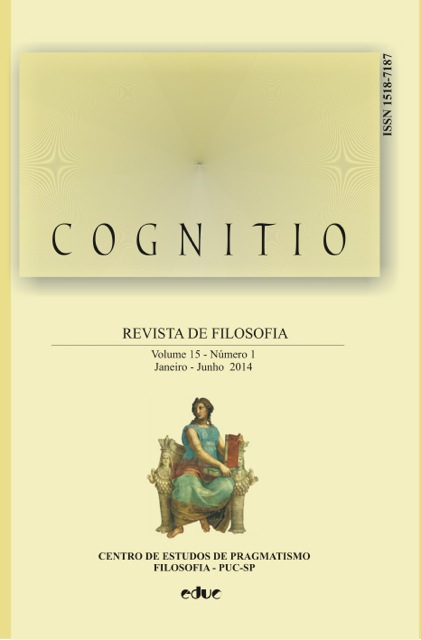“Coisas Injustificadamente Compulsórias”: Um Desafio Peirciano à Teoria Humiana da Percepção, Particularmente com Respeito à Percepção de Verdades Necessárias
Palavras-chave:
Peirce, Hume, Necessidade, Naturalismo, Epistemologia modal, Prova matemática, Percepto, Juízo perceptual, PercipuumResumo
Boa parte da epistemologia analítica tradicional é construída em torno de um tratamento cético em relação à modalidade que descende de Hume. As raízes desse ceticismo são apontadas na teoria (nominalista) da percepção de Hume, que é escavada, estudada e comparada com a muito diversa teoria (realista) da percepção de Peirce. Sustenta-se que a teoria peirciana não somente possibilita uma epistemologia consideravelmente mais sutil e eficaz, mas também (o contrário da teoria humiana) faz justiça ao que acontece quando apreciamos uma prova em matemática.Métricas
Carregando Métricas ...
Downloads
Publicado
2014-10-27
Como Citar
Legg, C. (2014). “Coisas Injustificadamente Compulsórias”: Um Desafio Peirciano à Teoria Humiana da Percepção, Particularmente com Respeito à Percepção de Verdades Necessárias. Cognitio: Revista De Filosofia, 15(1), 89–112. Recuperado de https://revistas.pucsp.br/index.php/cognitiofilosofia/article/view/21072
Edição
Seção
Artigos Cognitio









